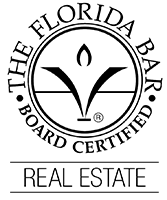Florida Probate Basics
Florida Probate Basics
Jim Martin is a Florida probate lawyer who drafts wills and trusts for Florida residents and who also advises beneficiaries, personal representatives, and trustees in probate and trust proceedings throughout Florida after a Florida resident dies. He usually charges for his services based on an hourly rate payable from the assets of the estate or trust (not a percentage fee). He encourages clients to do as much of the work as they can do in order to keep legal fees to a minimum. This page is the starting point for new clients to begin to understand the probate and trust administration process for deceased Florida residents.
What is probate? Probate is the process by which assets pass from someone who has died to his or her spouse, children or other beneficiaries after first being used to pay his or her debts, claims and taxes.
Why is probate required? In the olden days, property passed to the eldest son, but laws have changed so that the deceased person could leave a will naming a personal representative to pay the creditors and distribute the rest of the estate to beneficiaries named in the will. After someone dies, the will is filed with the court, and the court approves (probates) the will and appoints the personal representative named in it.
When is probate required? Probate is required in Florida whenever an individual dies owning any type of asset in his or her own name alone, unless all assets pass outside probate.
Can probate be avoided? Probate in Florida can be avoided by gifts before death, by owning assets jointly with survivorship rights, by contract such as life insurance and annuities and retirement accounts and IRAs, by titling assets in pay on death or transfer on death accounts, and by revocable trusts and irrevocable trusts.
Gifts Before Death. If a Florida resident gives away any asset before death then he or she would not own the asset at death and Florida probate would not generally be required for that asset. Of course, giving away all your assets might not be a good idea if you will need them, but some estate planning makes alternate provisions when a person does this.
Joint Property with Full Rights of Survivorship. If a Florida resident dies owning property in Florida jointly with full rights of survivorship with another person, then the property passes automatically by operation of law outside probate to the other person. Probate is not required for that property. However, if the property is owned as tenants in common with the other person, then probate is required, and the decedent’s interest in the property is a probate asset.
Tenancy by the Entirety. If a Florida resident dies owning property in Florida with his or her spouse as tenants by the entirety, then the property passes automatically by operation of law outside probate to the surviving spouse. Probate is not required for that property. Real estate in Florida owned by husband and wife is presumed to be tenancy by the entirety property, but it is best if the deed actually uses these words. Bank accounts and other tangible personal property in Florida can also be owned as tenants by the entirety. A couple must be married for tenancy by the entirety ownership to apply. Another benefit to tenancy by the entirety ownership in addition to avoiding probate is that Florida property owned as tenants by the entirety is not subject to claims of creditors of just one spouse; only joint creditors of both spouse can reach the tenancy by the entirety property to satisfy a judgment against them.
Life Insurance. Life insurance is a contract (policy) between a policyholder (owner) and an insurance company (insurer) by which the insurance company agrees to pay a certain sum of money to a third party (beneficiary) upon the death of a certain person (insured). The owner and insured can be the same person. When the insured dies, the insurance company pays the beneficiary directly per the insurance policy. Probate is not usually required for life insurance, but it can be required if the owner fails to designate a beneficiary or if the designated beneficiary dies before the insured. If the beneficiary designation fails, the contract usually specifies that the insurance company will pay the probate estate of the insured.
Annuities. Annuities are similar to life insurance but instead of paying a beneficiary after the insured dies, the annuity company pays the beneficiary during the annuitant’s life and payments stop being paid when the annuitant dies. (Sometimes there is a death benefit under the annuity contract that is similar to life insurance.) As long as there is nothing payable to the estate of the annuitant at death, there is no probate required for the annuity.
Retirement Accounts. Retirement accounts such as pensions, profit sharing plan accounts, 401(k) plan accounts, 403(b) plan accounts, and individual retirement accounts ( IRAs) provide for paying account balances at death of the account holder to the beneficiaries named in a designation of beneficiary form. No probate is generally required unless the beneficiary designations fail.
Pay on Death Accounts. Some accounts with banks, brokers and other financial institutions can be titled as pay on death, POD, transfer on death, TOD, or Totten Trust accounts, which named persons as beneficiaries to receive the account at death.
Trusts. A trust is a form of ownership created by a person (settlor) by which one person (trustee) holds legal title to property (corpus) for the benefit of another person (beneficiary) who is said to hold equitable title. A trust created by someone during his or her life is a living trust. If the trust can be revoked, then it is a revocable trust. If it cannot be revoked, then it is an irrevocable trust. If a Florida resident dies after creating a living trust, then any assets transferred to the trust during life do not usually require probate. Those assets pass outside probate because they are owned by the trustee of the trust and not by the deceased settlor.
When is probate required even if there are no assets owned at death? There are two situations where probate is opened even when the Florida resident owned no assets at death: wrongful death and living trust.
Wrongful Death. If a Florida resident dies as a result of someone else’s negligent or intentional act, there might be a cause of action for wrongful death against the perpetrator. In that case, a wrongful death lawsuit is filed by the personal representative of the probate estate. A probate proceeding must be opened in order to file the lawsuit even if the decedent owned no assets.
Living Trust. If a Florida resident dies owning no assets in his or her name but created a revocable trust during his or her life (living trust), then a probate proceeding is still recommended in order to clear claims of creditors in the shorter 3-month creditor claims period for probate estates instead of waiting the longer 2-year limitations period before distributing trust assets.






